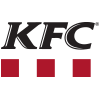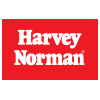History
Similar to Rugby League’s history in England, the split that saw the New South Wales Rugby Football League (NSWRFL) split from the then Southern Rugby Union (now Australian Rugby Union) was fundamentally around ‘broken-time’ payments for players.
Whilst those with privilege were keen to see the amateur ethos of Rugby retained, the growing number of players from working class backgrounds wanted the wealth the Southern Rugby Union was collecting shared back, especially if a player was injured.
In 1907 the situation was brought to a head when working class player, Alex Burton, broke his arm playing for NSW and was not compensated despite being unable to work.
This situation, plus a proposed visit by the New Zealand 'All Golds' enroute to Great Britain, saw an opportunity arise that entrepreneur JJ Giltinan could not resist.
Giltinan hastily organised a three game series between a rebel NSW side and the touring New Zealand team in Sydney which surprised many by its pulling power.
Following the series, a meeting was held at Bateman's Crystal Hotel in Sydney on 8 August 1907, to organise professional rugby in Australia.
Giltinan, Burdon and the Test cricketer Victor Trumper, were among those who attended. The meeting resolved that the New South Wales Rugby Football League (NSWRFL) should be formed, to play the Northern Union rules.
Despite threats of bans from the Southern Rugby Union and NSW Rugby Union, the NSWRFL successfully recruited players and clubs for the inaugural season in 1908.
The 'All Golds' return to Australia in 1908 helped the game continue to spread with the Queensland Rugby League formed off the back.
Over the following few years competitions were established in Newcastle, Wollongong, West Wyalong, Tamworth, Aberdeen, Orange, Bathurst, Dubbo and Nowra.
The remarkable growth of the sport in NSW and Queensland saw key figures in both Rugby League and AFL (VFL) consider creating an almalgamated sport, however naturally rules couldn't be agreed to.
At a national level, the Kangaroos would embark on their inaugural tour of Great Britain at the end of 1908. Whilst drawing the first match, the Kangaroos lost the next two matches seeing Great Britain win the inaugural Rugby League 'Ashes'.
Great Britain would make their first tour down Under in 1910, and would retain the Ashes after just two Tests. Great Britain would also play a two-game series against an Australasian side whilst in Australia that year, with the combined Australia and New Zealand side drawing the first game and winning the other.
The 1911-12 Kangaroos tour of Great Britain was technically an Australasian side with four Kiwis in the outfit. That team would win the Ashes, but be the last touring team to do so on British soil for the next 50 years.
By the 1920’s not only had Rugby League established itself as one of the biggest sports on the Australian east coast, but the 1920 Great Britain tour was one of the largest sporting tours the country had ever hosted.
In front of large crowds, the Kangaroos won their first ever series on home soil, and their first ‘Ashes’ trophy as a completely Australian outfit, however that would be the last time an Australian or Australasian side would win the Ashes for almost 30 years.
Despite Australia's lack of success against Great Britain in the coming years, interest in the international series only continued to grow with venues constantly packed for all games.
So much so, that in 1932 the Australia v Great Britain Test at the SCG drew a then international Rugby League attendance record of 70,204. A record which would stand for the next 60 years.
The advent of World War II saw a reduction in Test Series over the coming decade, however by the 1950s, not only were Great Britain touring, but so were the French. The 1951 French tour of Australia and New Zealand highlighted that there was a new powerhouse in international Rugby League, with the French defeating Australia 3 – 0.
Australia would take part in the inaugural World Cup in 1954, finishing third with only a single victory over New Zealand, before hosting the 1957 tournament, which the Kangaroos won after being the only undefeated team.
From 1957, Australia would feature in every World Cup Final, claiming the Paul Barrière Trophy ten times, including six back to back tournaments in a row between 1975 and 2000.
Australia’s growth as an international powerhouse only intensified once the 1970’s came around. The 1970 Great Britain tour of Australia was the last time the British won the ‘Ashes’ after dominating for most of the 60 years before hand and 1972 was the last time a team outside of Australia would win the World Cup until 2008.
France would be the last team to beat Australia in a major international tournament or Test series until the 2000’s when they surprised everyone with a 2 – 0 victory in 1978.
The 1980’s and 1990’s would prove to be a dominant period for the Kangaroos, claiming every piece of silverware they were eligible for.
It would take until the 2005 Tri-Nations for the Kangaroo’s golden era to come to an end, when a depleted Kiwis side not only defeated Australia twice in a single tournament since 1978, but prevented Australia from winning their first piece of silverware since 1972.
New Zealand would continue to act as a thorn in the Australian’s side over the next decade, claiming the 2008 World Cup, 2010 and 2014 Four Nations trophies, all on Australian soil.
Australia would claim the most recent World Cup title in 2013 and the Four Nations in 2016 to be the number one ranked nation heading into their first home World Cup in 2008.
Domestic Scene
Rugby League is one of the dominant sports in Australia, with more than 1.4 million participants playing variations of the code across the country.
Whilst Rugby League is the dominant sport in New South Wales, the ACT and Queensland, the code boasts growing numbers in all other states and territories, with competitions running from Under 6’s to Open Age in both genders.
The premier competition in Australia is the National Rugby League (NRL), which boasts fifteen teams from the East Coast of the country. In 2016, the Cronulla-Sutherland Sharks won their first ever premiership, defeating the Melbourne Storm 14 - 12 in the Grand Final.
Below the NRL is the National Youth Competition (Under 20’s), and the NSW and Queensland Cup competitions (known as the Intrust Super Premiership and Intrust Super Cup respectively).
National Team Stats
Moniker: Kangaroos
Colours: Green and Gold
Coach: Mal Meninga
First Test: New Zealand 11 d. Australia 10 – Sydney 1908
Best World Cup Result: Winner (1960, 1968, 1970, 1975, 1977, 1988, 1992, 1995, 2000, 2013), Runners Up (1960, 1972, 2008)
Famous Players
Australia boast many famous players who have graced the field over the years and who have proudly represented their country at the international level, that to pick out just a select few would not do justice.
As such, we have listed each of the players who have been inducted to the Australian Rugby League Hall of Fame. Each of these players (except for Brian Bevan) have represented their nation and have careers which spanned at least a decade at the top level.
- Dally Messenger
- Clive Churchilll
- Reg Gasiner
- Johnny Raper
- Graeme Langlands
- Bob Fulton
- Wally Lewis
- Dave Brown
- Wally Prigg
- Keith Holman
- Arthur Beetson
- Mal Meninga
- Harry Bath
- Norm Provan
- Ken Irvine
- Harold Horder
- Frank Burge
- Vic Hey
- Jimmy Craig
- Chris McKivat
- Duncan Thompson
- Brian Bevan
- Brian Carlson
- Ron Coote
- Ken Kearney
- Sid Pearce
- Charles Fraser
- George Treweek
- Duncan Hall
- Peter Sterling
- Arthur Halloway
- Tom Gorman
- Joe Pearce
- Harry Wells
- Keith Barnes
- Cyrus Wren
Ones to Watch
Heading into the 2017 Rugby League World Cup, lets look at some of the players who will be integral to the success of the Mate Ma’a Tongan side in the upcoming tournament.
Cameron Smith: The current Melbourne, Queensland and Australian captain, Cameron Smith, will, as always, play an integral part in the success of the Kangaroos at this year's World Cup. With 49 Test Caps and 39 Origin appearances to his name, Smith brings a level of representative experience many other teams would love to have.
Johnathan Thurston: As a three time Golden Boot winner there is little doubt about Thurston being one of the great halves currently playing our game, and just like the rest of his Queensland connection, he is set to be a thorn in the side of every opposing team at this year’s World Cup. The more ‘creative’ half of the Thurston-Cronk halves combination, Thurston has shown time and time again his ability to snatch victory from the jaws of defeat, and will definitely feature at this year’s World Cup tournament.
Cooper Cronk: If the sight of seeing Thurston and Smith in the same team wasn’t scary enough for most opposing sides in this year’s World Cup, just to make matters worse will be the inclusion of 32 Test veteran, Cooper Cronk. An integral part to both the Storm and Queensland Origin team, Cronk brings a level of professionalism and calmness to the field which only complements the Kangaroos spine.
Darius Boyd: Undefeated in the green and gold, even after 22 Test appearances, Boyd holds an enviable record of not knowing what defeat on the international arena feels like. A versatile back, Boyd is certain to appear in the Kangaroos backline at this year’s tournament.
Greg Inglis: Despite starting the season with a serious ACL injury, Kangaroos coach, Mal Meninga, has claimed that if fit by October, Inglis will be considered for this year’s World Cup. Damaging in either Centre, Wing or Fullback, Inglis will be keen to add to his 31 tries from 39 Test appearances if rehab goes to plan at this year’s event.
Sam Thaiday: A consistent feature in the Kangaroos’ forward pack, Townsville junior Thaiday, is almost certain to feature in his third Rugby League World Cup for the Kangaroos, and be an experienced head among what is likely to be a relatively young Kangaroos forward pack.
World Cup Group Stages
With home ground advantage plus a wealth of talented players from the NRL to draw upon for this year’s World Cup, being one of the three teams from Group A to progress to the tournament finals should be a certainty for the Kangaroos at this year’s tournament.
Whilst it’s progression and a trip to Darwin is almost a forgone conclusion, whether or not the Kangaroos progress from the Group Stages undefeated is far less certain.
For the hosts, clearly their opening game at the Melbourne Rectangular Stadium is their biggest at risk game. England have shown in recent years that they are improving both on and off the field, and with key players like Hodgson and Widdop currently in-form in the NRL, the English will come into the opening match confident.
History will certainly be on the Australian’s side for this match however, with the Kangaroos winning the last three encounters against England in Melbourne, with the last win by an English / British team in Victoria being back in 1992.
The Kangaroos second match will be against what is likely to be a young French Les Chanticleers in Canberra. With the inclusion of Toulouse in the British Rugby League structures, plus 11 seasons of the Catalans in Super League, the French will have one of their strongest side in years, however with a number of key players such has halfback Theo Fages, hooker Alix Da Costa and forward Benjamin Garcia all aged 23 or less, the French will be set to push the Australians, but are unlikely to record victory as the side builds for World Cup 2021.
Australia’s third and last match will be a bit of an unknown Test for the Kangaroos. Despite links to the game dating back to the early 90’s, the Lebanon Cedars have yet missed out on playing Australia in any Rugby League tournament up until now. With players of the ilk of Farrah, Mannah and Brooks to call upon, the Cedars will definitely boast their fair share of NRL talent, and will be looking to ambush the Australian’s before the tournament finals.
With a large Lebanese community based in Sydney, expect to see the Cedars leave nothing in the tank as they look to collect their largest scalp yet on the international arena.
Vs England
Played: 22 (131 as Great Britain)
W 14 (68) – D 2 (4) – L 7 (59)
Purchase Tickets to England v Australia in Melbourne on 27/10/2017
Vs France
Played: 59
W 44 – D 2 – L 13
Purchase Tickets to France v Australia in Canberra on 03/11/2017
Vs Lebanon
Played: 0
W 0 – D 0 – L 0
Purchase Tickets to Lebanon v Australia in Sydney on 11/11/2017
By Steve Birchall | @StevenBirchall
Contributor, RLWC2017








